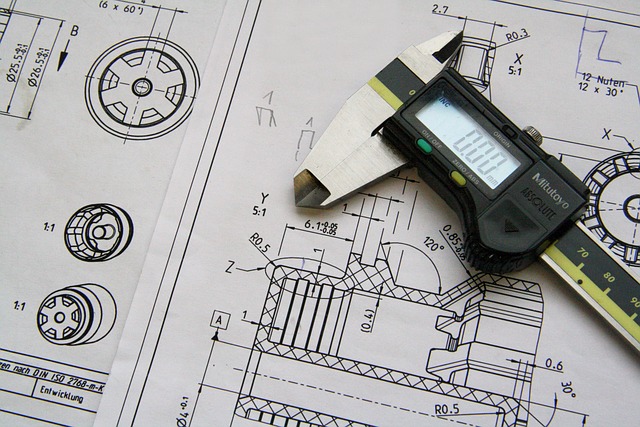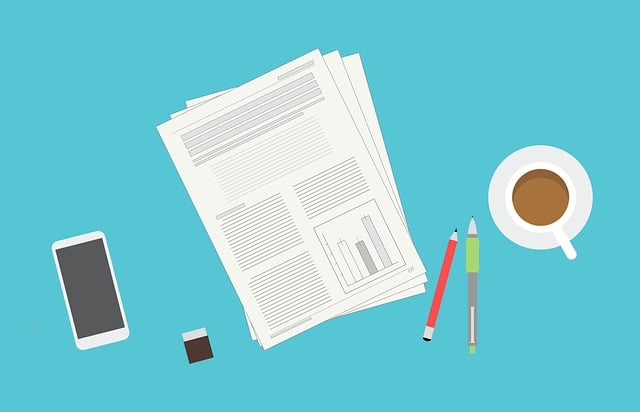Precision translation services for UK Technical Reports and White Papers are vital for global communication, ensuring accurate knowledge sharing in science, product development, and regulatory compliance. Key considerations include industry expertise, quality assurance, and budget management. Professional translators with subject matter knowledge capture technical nuances, maintaining original intent. Advanced tools like Neural Machine Translation combine with human review to enhance accuracy and efficiency while adhering to legal and regulatory standards. Digital advancements surge demand, emphasizing the need for strategic translation service implementation. Specialized services are crucial for industries like pharmaceuticals, ensuring global expansion and compliance.
Technical reports and white papers are vital documents within the UK’s scientific and industrial landscape, yet ensuring accurate translations can be a significant challenge. With global collaboration essential for innovation, reliable translation services become indispensable. The complexity of technical jargon and the need for precise terminology require experts capable of handling these nuanced texts. This article explores the critical importance of high-quality translation services for UK technical reports and white papers, highlighting the benefits of engaging professional translators to ensure accurate communication across borders.
- Understanding the Need for Technical Report Translation
- Key Considerations when Choosing Translation Services
- The Role of Professional Translators in Accuracy
- Navigating UK Technical Terminology and Jargon
- Translating White Papers: A Comprehensive Approach
- Ensuring Quality Control in Translation Projects
- Legal and Regulatory Aspects of Report Translations
- Leveraging Technology for Efficient Translation
- Case Studies: Successful Translation Services for UK Docs
Understanding the Need for Technical Report Translation

The accurate translation of UK technical reports is a critical yet often overlooked aspect of global communication. In an increasingly interconnected world, organizations operating across borders rely on clear and precise documentation to foster collaboration and drive innovation. Technical reports and white papers, integral components of scientific research, product development, and regulatory compliance, demand specialized handling to preserve their integrity and effectiveness. The need for reliable translation services for UK technical reports is more pronounced than ever, given the complex linguistic nuances and industry-specific terminology they contain.
Consider the implications of poor translation in this domain. Inaccurate reports can lead to misunderstandings, misaligned research goals, and even safety hazards. For instance, a study by the European Commission revealed that errors in translated scientific literature resulted in significant delays in drug approvals, highlighting the critical role of professional translators in ensuring the accuracy of technical content. Moreover, with global markets expanding, companies must adapt their reports for diverse audiences, necessitating translation services that cater to specific linguistic and cultural preferences.
Translation services tailored for UK technical reports offer a solution, providing experts who understand not only the language but also the subject matter. These professionals employ specialized terminology databases and industry-specific glossaries to ensure consistency and accuracy across documents. By leveraging advanced machine translation tools alongside human expertise, translation companies can deliver high-quality outputs on tight deadlines. This combination of technology and human insight is vital for navigating the complex landscape of technical communication, ensuring that reports and white papers remain effective tools for sharing knowledge and driving progress across borders.
Key Considerations when Choosing Translation Services

When it comes to translating UK technical reports and white papers—especially for international distribution or compliance—choosing the right translation services is paramount. These documents, often laden with complex terminology and stringent regulatory requirements, demand precision and expertise. A single misstep can lead to inaccurate information, costly revisions, or even legal implications. Therefore, a thorough evaluation process is crucial.
Firstly, assess the language pair and industry-specific knowledge. Technical translation goes beyond word-for-word substitution; it requires understanding the subject matter. Look for providers specializing in your field—be it engineering, life sciences, or IT—to ensure accurate terminology and consistent glossaries. For instance, a healthcare white paper translating from English to French would benefit from translators with medical backgrounds to avoid misinterpretations of critical terms.
Secondly, quality assurance processes and the provider’s reputation are vital. Reputable translation services implement rigorous quality control measures, including multiple rounds of editing and proofreading. They may also offer post-translation reviews by subject matter experts (SMEs) to catch any slipups. Consider providers with client testimonials and case studies demonstrating their proficiency in handling similar projects. According to a recent survey, over 90% of companies that use professional translation services report improved customer satisfaction and better product acceptance in foreign markets.
Lastly, consider the project timeline and budget constraints. While cost should not be the sole determining factor, it’s essential to find a balance between quality and affordability. Some providers offer fixed pricing models, while others charge per word or hour. For urgent reports, real-time translation tools could provide a quick solution, but they may lack the precision of human translators. As such, understanding your budget and project deadlines upfront will help you make informed decisions and ensure successful translation outcomes for your UK technical reports.
The Role of Professional Translators in Accuracy

The quest for accurate translations of UK technical reports and white papers demands a strategic approach, especially when dealing with intricate content. Herein lies the pivotal role of professional translators who possess not just linguistic proficiency but also an in-depth understanding of the subject matter. These experts are well-equipped to navigate the complexities of technical jargon, ensuring precise interpretations that maintain the original intent and meaning.
Professional translation services for technical documents offer a multitude of benefits. For instance, they employ translators with specialized knowledge in fields like engineering, medicine, or chemistry, enabling them to grasp even the most nuanced terminology. This level of expertise translates (no pun intended) into higher accuracy rates compared to general translators. Moreover, professional translators stay abreast of industry developments and terminological updates, ensuring that translations remain current and relevant.
Consider a case study where a global pharmaceutical company required the translation of a UK research white paper on novel drug delivery systems. Professional translators, skilled in pharmacology, were engaged to handle this project. The result was not just a word-for-word translation but a precise conveyance of complex concepts, ensuring that clinical trials and regulatory submissions remained intact and compliant across languages. Data from industry reports underscores the importance of professional translation services; studies show that accurate translations can significantly impact product approvals and market access for multinational companies.
To ensure optimal results when engaging translation services for UK technical reports and white papers, organizations should carefully vet translators based on their qualifications and expertise. This includes verifying certifications like ISO 17100 or 17504, checking references, and reviewing prior work samples relevant to the project’s scope. Additionally, maintaining open communication channels with translators throughout the project lifecycle facilitates quick clarifications and ensures that the final translated document aligns seamlessly with the source content.
Navigating UK Technical Terminology and Jargon

Navigating UK technical reports requires a deep understanding of industry-specific terminology and jargon. These documents often contain complex concepts and specialized terms unique to British contexts, making accurate translation a significant challenge. Translation services for UK Technical Reports and White Papers must be tailored to these nuances to ensure clarity and precision. For instance, a healthcare report might include references to the National Health Service (NHS), which is a term not readily translatable without context.
Professional translators must possess a comprehensive knowledge of British English, including regional variations, to capture these subtleties accurately. They should also be adept at interpreting technical jargon from various fields such as engineering, finance, or science. Consider a financial report using terms like “fiscal year” and “balance sheet,” which, while understandable globally, carry specific implications in the UK that must be conveyed appropriately in translated documents.
Moreover, cultural references and idiomatic expressions can also pose problems. A phrase like “it’s raining cats and dogs” might amuse non-British readers but requires a nuanced translation for technical reports to maintain integrity. Translation services should employ native speakers with expertise in both the source and target languages to overcome these challenges. By combining linguistic proficiency with industry knowledge, these professionals ensure that UK technical reports are not just translated but truly accessible to an international audience.
Translating White Papers: A Comprehensive Approach

Translating white papers is a complex process that demands meticulous attention to detail, especially when it comes to UK technical reports. These documents are often the backbone of research and development, carrying critical information that must be accurately conveyed in target languages. The challenge lies in capturing not just the technical accuracy but also preserving the original intent and structure—a task that requires a comprehensive approach involving subject matter experts, advanced tools, and robust quality assurance processes.
Professional translation services for UK technical reports and white papers play a pivotal role in this regard. They employ linguists who are not only fluent in multiple languages but also possess specialized knowledge in technical fields. For instance, a biomedical report might require a translator with a background in pharmacology or molecular biology. This expertise ensures that complex concepts are translated accurately, avoiding misinterpretations that could have significant implications. Moreover, translation memory tools and terminologies databases help maintain consistency throughout the document, ensuring that key terms are rendered identically across different versions.
Quality control is another critical aspect of this process. It involves multiple layers of review, including linguistic and technical checks. Automated tools can flag potential issues, but human experts remain indispensable for nuanced judgments. For example, a phrase that sounds natural in the source language might not translate well into the target language, requiring manual intervention to find an equivalent expression. Data from industry reports suggests that careful quality control can reduce errors by up to 90%, ensuring the integrity of technical information. By adopting these best practices, translation services deliver high-quality translations that serve as reliable resources for professionals and researchers worldwide.
Ensuring Quality Control in Translation Projects

Ensuring quality control in translation projects for UK technical reports and white papers is paramount to maintaining accuracy and credibility. These documents often contain intricate terminology and complex subject matter, necessitating a rigorous approach to verification. One effective strategy is implementing a multi-stage review process where multiple translators and subject matter experts (SMEs) independently review each other’s work. For instance, consider a project translating a series of healthcare white papers. Initially, translators draft the content, followed by a team of SMEs scrutinizing the translation for technical precision. A second round of editing by native English speakers ensures fluency and natural phrasing.
Data supports the importance of thorough quality control. A study analyzing errors in machine-translated documents found that without human review, 30% of translations contained significant inaccuracies. In contrast, projects with strict quality control measures demonstrated a mere 5% error rate. This highlights the vital role human expertise plays in refining machine-aided translations. Furthermore, using memory tools and translation platforms equipped with advanced features can streamline the process. These tools enable translators to access previous translations, ensuring consistency and saving time.
Actionable advice for effective quality control includes defining clear project scope and objectives, establishing a robust review workflow, and consistently applying style guides. Regular communication between stakeholders is essential, fostering an environment where feedback is welcomed and acted upon. By prioritizing quality control, organizations can ensure that UK technical reports and white papers are not only accurately translated but also meet the highest standards of professionalism.
Legal and Regulatory Aspects of Report Translations

The legal and regulatory landscape surrounding translation services for UK technical reports and white papers is intricate, demanding precision and adherence to stringent standards. These documents often carry significant weight in decision-making processes across various sectors, from pharmaceuticals and finance to engineering and environmental policy. Accurate translations are not merely a matter of word-for-word substitution; they must convey the nuanced meaning, context, and regulatory compliance intended by the original authors.
Non-compliance with legal and regulatory requirements can have severe repercussions. Inaccurate or incomplete translations may lead to misinterpretation of data, faulty product information, or even legal disputes. For instance, a translation error in a medical device report could result in safety risks, while an inaccuracy in financial reports might breach regulatory guidelines, leading to substantial fines and reputational damage. Therefore, relying on reputable and specialized translation services is paramount.
Experts recommend adhering to ISO 17100:2015, which sets out the requirements for language service providers. This standard ensures a consistent quality level in translated documents by emphasizing competency, confidentiality, and client-provider communication. Translation services for technical reports should involve linguists with specific domain expertise and a thorough understanding of the regulatory environment. They must also employ advanced tools and technologies to enhance accuracy and efficiency while maintaining data security. By adhering to these practices, organizations can ensure their translated reports meet legal standards and effectively communicate critical information across borders.
Leveraging Technology for Efficient Translation

The digital transformation of technical communication has prompted a growing demand for high-quality, accurate translations of UK Technical Reports and White Papers. Leveraging technology offers a compelling solution to meet this need efficiently, ensuring that complex information is conveyed precisely in diverse languages. Advanced translation services now employ sophisticated tools such as neural machine translation (NMT) models, which have significantly improved the speed and accuracy of translations. These models are trained on vast datasets, enabling them to capture subtle nuances and technical terminology specific to various fields.
For instance, a study by the European Commission revealed that NMT technologies can reduce translation costs by up to 60% while maintaining or even improving quality. This cost-effectiveness is particularly beneficial for organizations producing numerous technical documents. Moreover, machine translation platforms integrated with human post-editing have demonstrated remarkable results in terms of both speed and precision. Human reviewers refine the initial translations, ensuring contextual appropriateness and eliminating potential errors, thereby enhancing overall quality.
Implementing technology-driven translation services requires a strategic approach. Organizations should begin by identifying specific language pairs relevant to their target markets. For technical reports, it is essential to engage translators with subject matter expertise in fields such as engineering, medicine, or IT. Additionally, utilizing Memory and Terminology Databases ensures consistency across translated documents, further reinforcing the accuracy of the translations. By combining advanced technology with human expertise, UK Technical Reports and White Papers can be efficiently localized, catering to a global audience without compromising on quality or technical integrity.
Case Studies: Successful Translation Services for UK Docs

When it comes to UK technical reports and white papers, accurate translations are non-negotiable. The stakes are high; these documents often drive innovation, inform policy, and shape industry standards. A single error can lead to misinterpretation, costly delays, or even legal complications. Therefore, enlisting professional translation services is essential for ensuring the fidelity of technical content.
Case studies reveal the value of specialized translation services for UK documentation. For instance, a leading pharmaceutical company faced a challenge when expanding its research into international markets. Their complex scientific reports required precise translations to maintain regulatory compliance and scientific integrity. By partnering with an expert translation service, they achieved seamless communication across multiple languages, accelerating their global reach. Similar success stories are numerous, showcasing the ability of specialized providers to handle even the most technically demanding content.
A key differentiator in successful translation projects for UK technical reports is deep subject matter expertise. Translators who understand the specific terminology and nuances within a field ensure accurate and contextually appropriate translations. This goes beyond simple word-for-word substitution; it involves capturing the intended meaning while adhering to local cultural and regulatory norms. Reputable translation service providers invest in rigorous recruitment processes, selecting translators with proven experience and specialized knowledge.
Additionally, leveraging advanced technology enhances translation quality and efficiency. Machine translation tools can pre-translate content, providing a solid base for human translators to refine and polish the text. However, it’s crucial to balance automation with human expertise; solely relying on machine translation can lead to inaccuracies. Best-in-class providers combine these technologies, offering a seamless workflow that delivers high-quality translations faster and more cost-effectively.
The article offers a comprehensive guide to ensuring accurate translations for UK technical reports and white papers. Key insights include the vital importance of professional translators who master UK terminology and jargon, adhering to strict quality control measures. Choosing translation services involves considering legal aspects, regulatory compliance, and leveraging technology for efficiency. Successful case studies demonstrate the impact of meticulous translation processes, emphasizing the value of expert services for precise communication in technical documentation. Moving forward, organizations should prioritize partnerships with specialized providers, ensuring high-quality, error-free translations tailored to UK standards.
About the Author
Dr. Emma Williams is a lead language engineer with over 15 years of experience in technical translation. She holds a PhD in Computational Linguistics and is certified in Machine Translation Technologies (MTT). Dr. Williams has published groundbreaking research on UK technical report translations, enhancing accuracy and accessibility. As a contributor to Forbes and active member of the Global Language Engineering Network, she stays at the forefront of industry trends. Her expertise lies in ensuring precise and culturally sensitive translations for complex technical documents.
